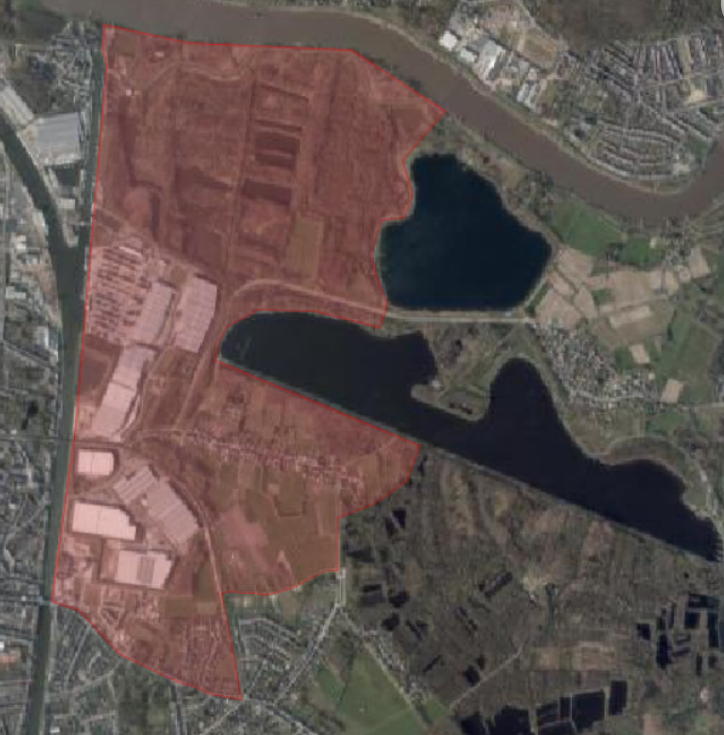Written on 28/06/24

In the new European LIFE project PFASTER, 11 partners are joining forces to tackle PFAS contamination in and around the site of the former paper factory in Willebroek, while simultaneously protecting the environment. The project focuses on research, innovative remediation techniques and nature-based solutions.
High concentrations of PFAS were detected at the site of the former paper factory in Willebroek in 2021. The soil investigations, remediation of contaminated soil and procedures for tackling residential zones on these redeveloped sites are ongoing. However, issues concerning the wider surroundings of the site, including the provincial domain Broek de Naeyer, also need addressing. This is a complex process because residential, agricultural and natural areas are highly intertwined and pollution occurs in soil, groundwater, sediment and surface water.
Governments, private partners and research institutions are joining forces in this LIFE project. We focus on research into the composition and spatial distribution of PFAS. Since the paper industry applies specific substances from the large family of around 6,000 PFAS, it is possible to establish a typical ‘fingerprint’ and behaviour in the environment. Furthermore, we review the various exposure pathways and risks of PFAS. How are PFAS incorporated into plants, crops and organisms, and to what extent do these substances spread and accumulate in the food chain or an ecosystem? We try to find reasoned answers to these types of questions.
In addition, we will test some nature-based remediation techniques for both soil, groundwater, sediment and surface water. In this context, for the provincial domain Broek de Naeyer nature reserve, we are looking at specific clean-up agents in nature, such as fungi, bacteria and other microorganisms, and their ability to break down the PFAS. We are also studying pollution removal options with aquatic plants, reeds and willows. In agricultural areas, we are working on crops, as well as fungi, and special filters are being developed for highly polluted ground and surface waters. Finally, we look at the applicability of in situ flushing in combination with the use of fungus to clean the soil flushing water and a combination of membrane filtration and plasma destruction for remediation of the most contaminated groundwater in the source zone.
By testing these remediation techniques, we are trying to create a cleaner overall environment, but also improve the environment for the otter populations present in this area.
All this experience and knowledge is ultimately to be combined in an area vision and integrated approach to PFAS contamination for the Willebroek and Broek de Naeyer site. ‘This project is an important step forward in the fight against PFAS contamination in Flanders. The intention is to apply current knowledge and experience to other areas in Flanders and beyond that are struggling with PFAS contamination,’ said OVAM spokesman Jan Verheyen.
The LIFE project PFASTER starts in the autumn of 2024 and will run for five years.
The budget for this project is EUR 4,387,598 with 60% co-financing from the European Commission.
The partners are:
Jan Verheyen – Stationsstraat 110 2800 Mechelen
T 015 284 140 – G: 0479 89 07 46
woordvoerder@ovam.be